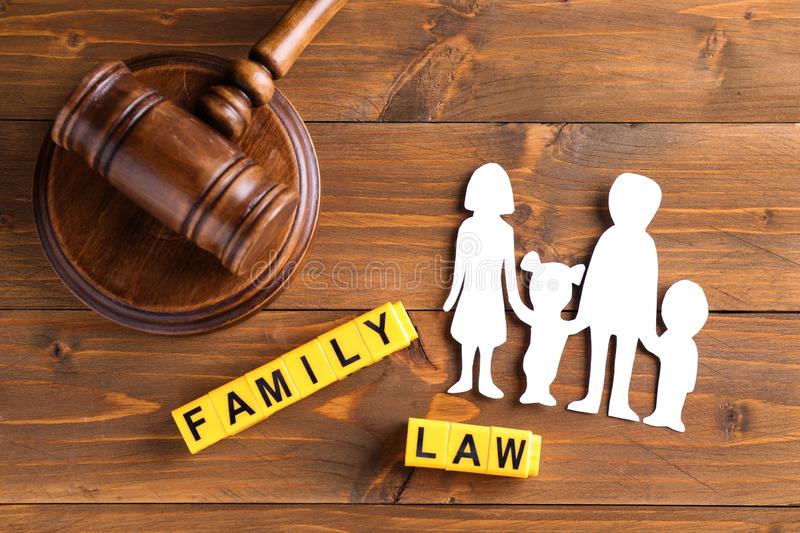Family law is a field of legal practice that deals with all aspects of familial relationships and domestic matters. It encompasses a wide range of legal issues, including marriage, divorce, child custody, child support, adoption, and domestic violence. Whether you are going through a divorce, seeking custody of your children, or facing domestic abuse, understanding your rights and the legal processes involved is crucial. This article aims to provide a comprehensive guide to family law, explaining its fundamental principles and key areas, as well as the role of a family lawyer and how they can assist you during these challenging times.
Understanding the Basics of Family Law
Family law is a specialized branch of the legal system that focuses on resolving legal issues arising from familial relationships. It is primarily concerned with protecting the rights and well-being of family members and ensuring fair and equitable outcomes in sensitive matters. By understanding the basics of family law, you can navigate your way through the legal system more confidently.
Family law encompasses a wide array of legal principles and regulations that govern the intricate dynamics of family relationships. It delves into the complexities of emotional bonds, financial responsibilities, and legal rights that define the interactions between family members. This branch of law is designed to provide a structured approach to resolving conflicts and establishing guidelines for behavior within the family unit.
Definition and Importance of Family Law
Family law governs legal relationships and obligations between family members, providing a framework for resolving disputes and protecting the interests of all parties involved. Its importance is evident in its ability to safeguard the rights of individuals in various familial contexts, such as marriage, parenthood, and domestic partnerships.
Furthermore, family law plays a crucial role in upholding societal values and promoting stability within families. By addressing issues such as child welfare, spousal support, and property division, family law contributes to the maintenance of order and justice in personal relationships. It serves as a cornerstone for establishing boundaries, rights, and responsibilities that guide familial interactions and ensure the well-being of all family members.
Key Areas Covered by Family Law
Family law covers a wide range of legal matters, addressing issues related to marriage, divorce, child custody and support, adoption, surrogacy, domestic violence, and more. These areas often intersect and require careful consideration and legal expertise to ensure fair and just outcomes for all parties involved.
Within the realm of family law, each key area holds its own set of complexities and nuances that demand specialized knowledge and skills from legal professionals. From navigating the emotional intricacies of child custody battles to negotiating the financial implications of divorce settlements, family law practitioners play a vital role in advocating for their clients’ rights and interests. The multifaceted nature of family law underscores the importance of seeking expert guidance and representation when facing legal challenges within the familial context.
The Role of a Family Lawyer
A family lawyer plays a crucial role in navigating the complexities of family law and protecting your rights and interests. They are legal professionals who specialize in handling family-related matters and possess extensive knowledge and experience in this specific area of law.
Family lawyers not only act as legal representatives but also serve as emotional support systems for their clients during challenging times. They understand the sensitive nature of family disputes and strive to provide compassionate guidance while upholding their clients’ legal rights.
Responsibilities of a Family Lawyer
Family lawyers are responsible for providing legal advice, representing clients in court, negotiating settlements, and preparing necessary legal documents. They guide clients through the legal process, ensuring that their rights are protected and their best interests are represented.
In addition to their legal duties, family lawyers often collaborate with other professionals, such as counselors, financial advisors, and mediators, to offer comprehensive support to their clients. This holistic approach ensures that clients receive well-rounded assistance in navigating the complexities of family law issues.
When to Consult a Family Lawyer
Consulting a family lawyer is advisable when facing any legal issue related to family law. Whether you are contemplating divorce, seeking custody of your children, or dealing with domestic violence, a family lawyer can provide you with the necessary guidance, support, and representation.
Family lawyers can also assist in prenuptial agreements, adoption proceedings, and estate planning, offering a wide range of services to meet the diverse needs of individuals and families. Their expertise extends beyond litigation, encompassing proactive legal strategies to safeguard the future well-being of their clients and their loved ones.
Navigating Divorce and Separation
Divorce and separation can be emotionally and legally challenging. Family law provides guidelines and processes for resolving the legal aspects of these situations.
When going through a divorce or separation, it is essential to consider not only the legal aspects but also the emotional and mental well-being of all parties involved. Seeking support from therapists, counselors, or support groups can help individuals navigate the complex emotions that often accompany the dissolution of a marriage.
Legal Aspects of Divorce
Divorce involves the legal termination of a marriage and encompasses various aspects such as division of assets, spousal support, and child custody. Family law ensures that these matters are addressed in a fair and just manner.

It is crucial for individuals going through a divorce to familiarize themselves with their legal rights and options. Consulting with a knowledgeable family law attorney can provide clarity on the legal processes involved and help individuals make informed decisions regarding their future and the well-being of their family.
Rights and Responsibilities During Separation
During separation, both parties have rights and responsibilities that need to be acknowledged and respected. Family law provides a framework for determining issues such as child custody, visitation rights, and financial support, protecting the best interests of the involved parties, particularly the children.
In cases of separation, communication and cooperation between the parties are key to reaching amicable agreements. Mediation or collaborative law processes can offer a more peaceful and less adversarial approach to resolving disputes, fostering a healthier co-parenting relationship post-separation.
Child Custody and Support Issues
Child custody and support are key areas of family law that have a profound impact on the well-being and future of children.
When it comes to child custody, it is essential to understand that there are different types of custody arrangements that can be made. These include physical custody, legal custody, sole custody, joint custody, and split custody. Each type has its own implications for both the parents and the children involved, and the decision on which type of custody to pursue is often based on what is deemed to be in the best interests of the child.
Understanding Child Custody Laws
Child custody laws determine the legal rights and responsibilities of parents in relation to their children after a divorce or separation. These laws prioritize the best interests of the child and aim to ensure their physical and emotional well-being.
In cases where parents are unable to reach a custody agreement on their own, the court may intervene to make a decision based on various factors such as the child’s relationship with each parent, the ability of each parent to provide a stable environment, and any history of abuse or neglect. It is important for parents to familiarize themselves with these laws to better navigate the complexities of child custody disputes.
Child Support: What You Need to Know
Child support is a legal obligation that ensures the financial well-being of children. Family law addresses the issues of child support, considering factors such as the income of both parents, medical expenses, and the child’s needs.
Calculating child support payments can be a complex process, as it involves assessing the financial resources of both parents, determining the needs of the child, and ensuring that the child’s standard of living is maintained post-divorce. It is crucial for parents to understand their rights and obligations regarding child support to ensure that the children receive the financial support they require.
Dealing with Domestic Violence
Domestic violence is a serious issue that affects countless individuals and families. Family law provides legal protections and procedures to address and prevent domestic abuse.
Domestic violence can take many forms, including physical, emotional, psychological, and financial abuse. It is important for victims to recognize the signs of abuse and seek help as soon as possible. Family law not only offers legal protections but also resources such as counseling services, support groups, and shelters for those in need of assistance.
Legal Protections Against Domestic Violence
Family law includes provisions to protect victims of domestic violence, offering restraining orders and legal measures to ensure the safety and well-being of those affected.
Restraining orders are court orders that prohibit an abuser from contacting or being near the victim. These orders are crucial in providing immediate protection and preventing further harm. Family law also allows for emergency protective orders to be issued in urgent situations, prioritizing the safety of the victim and any children involved.

How Family Law Addresses Domestic Abuse
Family law addresses domestic abuse by providing legal avenues for victims to seek protection and justice. It involves processes such as obtaining restraining orders, filing for divorce, and ensuring the safety of the victim and any children involved.
When dealing with domestic abuse cases, family courts consider the well-being of the victim and any dependents, aiming to provide a safe and supportive environment for all parties involved. Legal professionals specializing in family law are equipped to handle sensitive cases with empathy and expertise, guiding victims through the legal proceedings and advocating for their rights.
Understanding family law is essential for anyone facing legal matters related to marriage, divorce, child custody, or domestic violence. By knowing your rights and the legal processes involved, you can make informed decisions and protect your best interests. It is advisable to consult a knowledgeable family lawyer who can guide you through the complexities of family law and ensure that your rights are protected every step of the way.
See Also: Key considerations when hiring a property lawyer for your next purchase.

